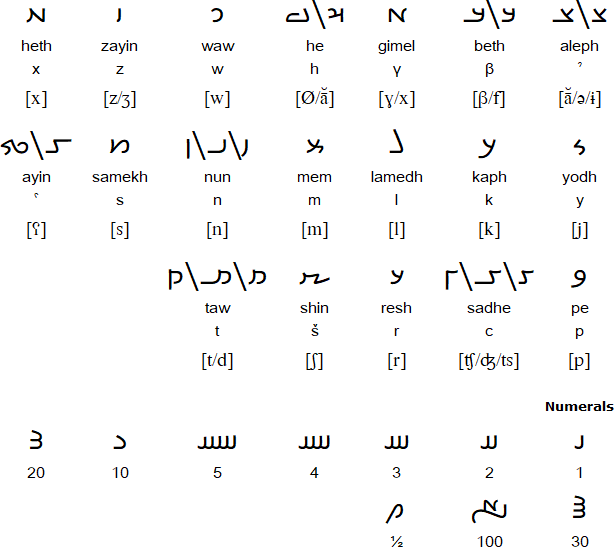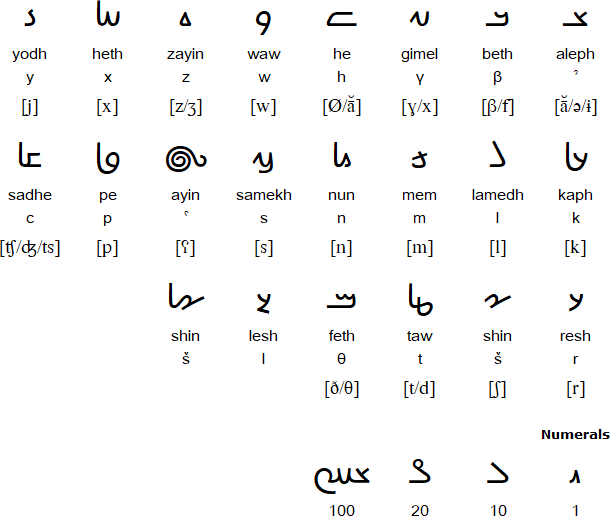The Sogdian script developed from the Aramaic and was first used during the 4th century AD. The earliest form of the script, shown below, was used to write letters and for inscriptions. A cursive version of the script was used in secular documents, royal proclamations, and Buddhist and Manichaen manuscripts. The Sogdian script largely fell out of use during the 10th century, though was used to some extent until the 13th century.
Sogdian is an extinct member of the eastern branch of Middle Iranian languages once spoken in Sogdiana, a region that includes parts of China (Xinjiang), Uzbekistan, Tajikistan, Pakistan. Yaqnabi, a language spoken in Tajikistan is thought to be a modern descentant of Sogdian.


Download alphabet charts for Sogdian (Excel)

at βaγw xutāw βarak nanyē-θβār kanak
(ēw-)zār βrēwar āfrīwan namācyu
spātzānūk kaδ-uti wēšanu βaγān(u)
βyart pišt con xēpθ βantē nanē-βantē
To the Divine Master Barak(?) Nanethvar Kanak a thousand, ten thousand greetings, reverently with bended knees when received by their divinities. Written by his own
servent Nanevante.
An Ancient Letter found in a mailbag in the Great Wall of China
Source: The World's Writing Systems; by Peter T. Daniels & William Bright; Oxford University Press 1996
Information about the Sogdian language and alphabet
http://iranianlanguages.com/midiranian/sogdian.htm
http://en.wikipedia.org/wiki/Sogdian_alphabet
Ancient Berber, Arabic, Aramaic, Chorasmian, Elymaic, Hatran, Hebrew, Manichaean, Nabataean, North Arabian, Pahlavi, Palmyrene, Parthian, Phoenician, Paleo-Hebrew, Proto-Sinaitic / Proto-Canaanite, Psalter, Punic, Sabaean, Samaritan, Sogdian, South Arabian, Syriac, Tifinagh, Ugaritic
Page last modified: 13.04.23
[top]
You can support this site by Buying Me A Coffee, and if you like what you see on this page, you can use the buttons below to share it with people you know.

If you like this site and find it useful, you can support it by making a donation via PayPal or Patreon, or by contributing in other ways. Omniglot is how I make my living.
Note: all links on this site to Amazon.com, Amazon.co.uk
and Amazon.fr
are affiliate links. This means I earn a commission if you click on any of them and buy something. So by clicking on these links you can help to support this site.
[top]